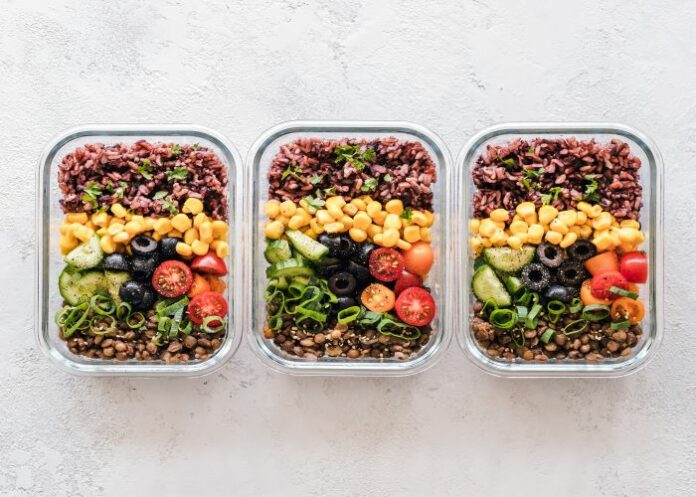Plant-based diets are growing in popularity for their many health benefits, including lower risks of heart disease and type 2 diabetes – but some of these may cause more harm than good, particularly if they include ultra-high processed foods.
Plant-based diets refer to those based on foods made from plants, and include vegetarian and vegan diets. While vegan diets exclude all animal products, vegetarian options, which exclude just meat and fish, are more diverse and may include dairy and eggs. Pescatarian diets exclude meat, but not fish.
There’s been a surge in plant-based diets worldwide, thanks to decades of scientific research and the mounting evidence of their potential health benefits, not limited to improved blood cholesterol and blood sugar levels, reports MedicalNews Today.
Added to that is increased awareness of the environmental impact of animal rearing, like high levels of greenhouse gases, land degradation and excessive water, which have also motivated some people to adopt these diets, often more environmentally friendly.
However, there are some health risks associated with some plant-based diets, particularly if there is high consumption of “junk” veggie foods.
What are ‘junk’ plant-based foods?
By definition, 'junk' plant-based foods are ultra-processed foods that contain minimal whole foods, are high in calories, added sugar, salt and fats, offer little nutritional value, and have been processed with cheap industrial additives.
Using the NOVA classification system, which categorises food products according to the extent of industrial processes they undergo, “junk” foods can include many plant-based products, such as:
• commercially-produced breads, pastries, cakes and cookies
• carbonated beverages
• pre-packaged snacks
• flavoured dairy drinks
• breakfast cereals
• energy bars
• instant sauces, soups, noodle pots and desserts.
Health risks
Ultra-processed foods offer convenience and continue to replace minimally processed whole foods: they now account for more than half of the daily intake of calories for many individuals in middle- and high-income countries.
While a healthy and balanced plant-based diet is diverse, frequent consumption of plant-based ultra-processed foods is associated with negative health outcomes.
For instance, in a 2019 cohort study that followed 105 159 adults over a five-year period, the researchers observed that even a 10% increase in the consumption of ultra-processed foods was associated with a higher risk of heart disease and stroke.
This small increase in ultra-processed foods is also associated with a higher risk of developing some cancers, type 2 diabetes and increased exposure to harmful chemicals from food packages.
In addition, calorie intake is reportedly higher in plant-based diets that are rich in ultra-processed foods, which may lead to weight gain and a greater potential for developing obesity.
To compound the negative health risks associated with diets rich in ultra-processed foods, vegetarian and vegan diets can exclude food groups, making nutrient deficiencies more common.
Overall, some studies have shown that vegetarians and vegans have lower levels of nutrients like iron, vitamin B12, calcium, vitamin D and omega-3 fatty acids.
Furthermore, a 2022 study showed that vegetarian women have an increased risk and occurrence of hip fractures compared to women who occasionally consume meat.
It is possible that these adverse outcomes are linked to the omission of iron- and B12-rich meats, and calcium-rich animal sources in vegetarian and vegan diets.
These problems might be compounded by people not replacing those nutrient sources with fruits, vegetables, nuts and pulses, and eating ultra-processed foods instead.
How to avoid these health risks
Well-planned vegetarian or vegan diets consistently offer several health benefits, and they can safeguard against nutrient deficiencies and adverse health risks associated with diets rich in ultra-processed plant-based foods.
Not only do plant-based diets promote longevity, but they may reduce muscle loss – also called sarcopenia – in older people with obesity.
They are also safe during pregnancy and lactation as long as they fulfil nutrient requirements, as well as during physical performance.
Nutritionally balanced and well-planned plant-based diets more closely adhere to US dietary recommendations and improve overall diet quality based on the Healthy Eating Index.
This occurs thanks to the increased intake of:
• fruits
• non-starchy vegetables
• whole grains
• low-fat dairy
• eggs
• plant protein
• seafood.
Such diets are also lower in salt, added sugar, fats and calories.
So while not all plant-based diets are linked to negative health risks, it is important to note that following a healthy overall eating pattern is essential for managing risks the risk of heart disease, diabetes and cancer.
The intake of ultra-processed foods should be limited: plant-based ultra-processed foods high in salt, added sugars and fats should be eaten in moderation.
In particular, veggie meat replacement products are often high in sodium and saturated fats.
Switching to a plant-based diet may feel restrictive, and research shows that meats may be replaced with refined or highly processed carbohydrate-rich foods.
Proteins should also be included in the diet: peas and beans, nuts, seeds, seitan, textured vegetable protein, tofu, tempeh, edamame, eggs, milk, cheese, yogurt and seafood are all high-protein food sources for vegetarians that also provide calcium, iron, vitamin D and some vitamin B12, commonly deficient in vegetarians.
Vegetarians and vegans can experience nutrient deficiencies in iron, calcium, vitamin D, and vitamin B12, due to the exclusion of animal foods that are rich in these nutrients.
However, well-planned vegetarian or vegan diets rich in fruits, non-starchy vegetables, whole grains, dairy and plant sources of protein offer several health benefits, and safeguard against adverse health risks associated with diets rich in “junk” veggie foods.
See more from MedicalBrief archives:
More chance of hip fracture for vegetarian women – large-scale British study
Eating mostly plant-based foods may be linked to better heart health
Plant-based diet lessens risk of cognitive impairment — 12-year European study
Human cells less able to absorb protein from ‘vegan’ meat’ – Ohio study
ACC review: Plant-based diet with little or no animal products is best

